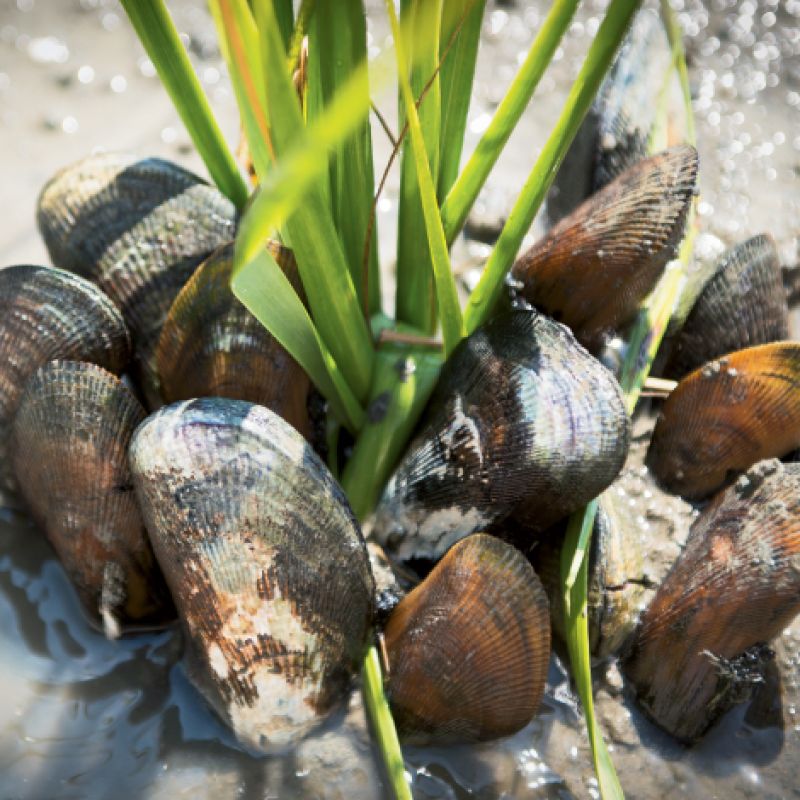
As you approach the mudflats anchoring Danny Hieronymus’ shellfish beds, the beauty of the ACE Basin comes into view. Marsh hens flutter through the spartina, and periwinkles cling to emerald reeds swaying with the tides. Hieronymus, who runs local seafood outfit St. Jude Farms, didn’t go looking for mussels in this pristine spot—he and his crew were focused on filling their boats with oysters, which they sell to clients such as Amen Street. But in 2013, when he and a co-worker stumbled onto fields of them growing wild, they saw potential for a new cash crop.
“We’d recently expanded from two oyster leases behind Otter Island to four, and when we got to looking around on the sweetgrass flats in the new part of our allottment, we discovered mussels growing there,” Hieronymus explains.
Dubbed “Sweetgrass Mussels,” their journey from pluff mud to fine china wasn’t preordained; old timers in the area, who knew they were there, scoffed at the very notion of eating them. “People always said they were bitter and such,” Hieronymus recalls, “but nobody had ever cooked one—they come out sweet and delicious.” His own initial experiments in a classic garlic and white wine preparation were all it took to win him over. And area chefs have swiftly gotten on board: High Cotton, Muse, and Bay Street Biergarten are snapping them up, and buyers as far as Asheville are loading them onto fall menus.
The briny mollusks are large and plump, with a ribbed shell and a stout beard that must be removed before cooking; they taste sweet because they’re gathered from waters with high salinity. “We call them ‘m-oysters,’” sales manager Doug Hepburn offers, “because they taste like a cross between mussels and oysters.” St. Jude harvests them from the wild but holds them in “wet storage” cages suspended in the water, where tidal flows help to purge any sand or grit. This allows an efficient inventory process, so the company can stock a dependable supply for chefs. It also means less waste, and that’s important to Hieronymus and Hepburn, who take care to harvest sustainably.
Currently, the season runs October through spring, but St. Jude is petitioning the S.C. Department of Natural Resources to extend that through summer. (Staffers say they’re tasty and safe to eat all year when cooked.) The team hopes this will help them bring the product to more palates. “A Southern mussel commands quite a niche in the marketplace,” Hieronymus says. “We aim to satisfy those folks and create a unique product tasting of the South Carolina Lowcountry.”